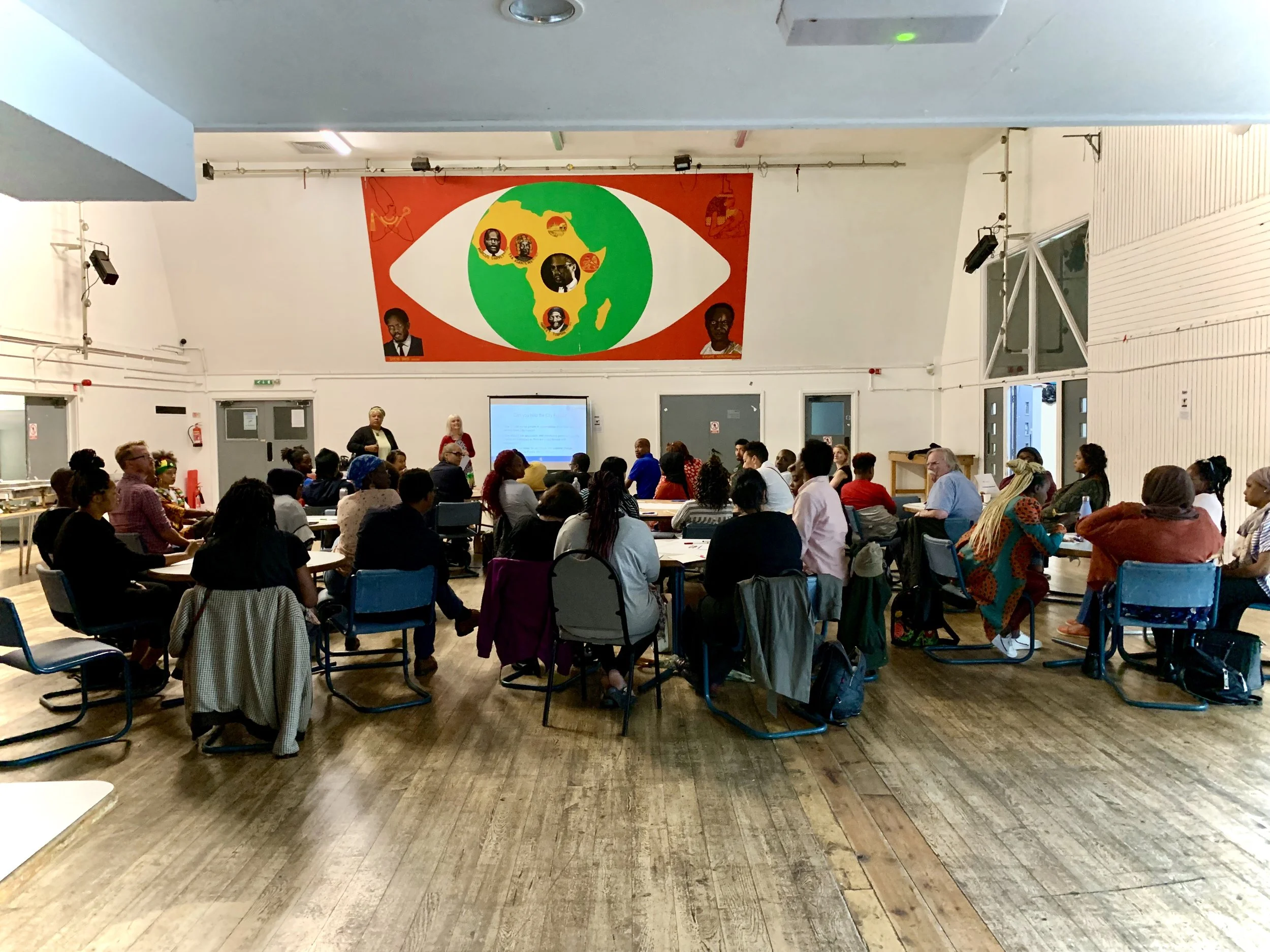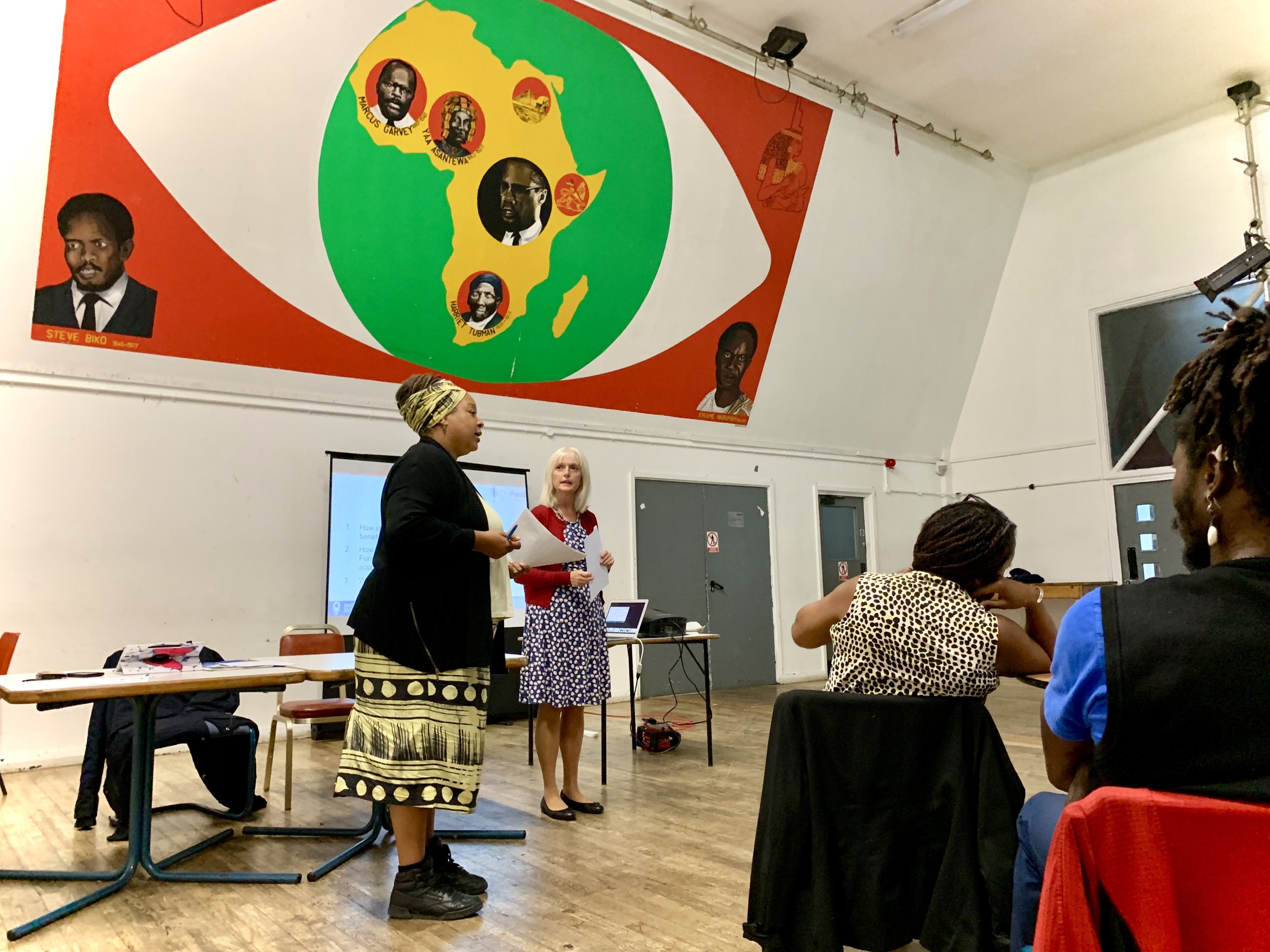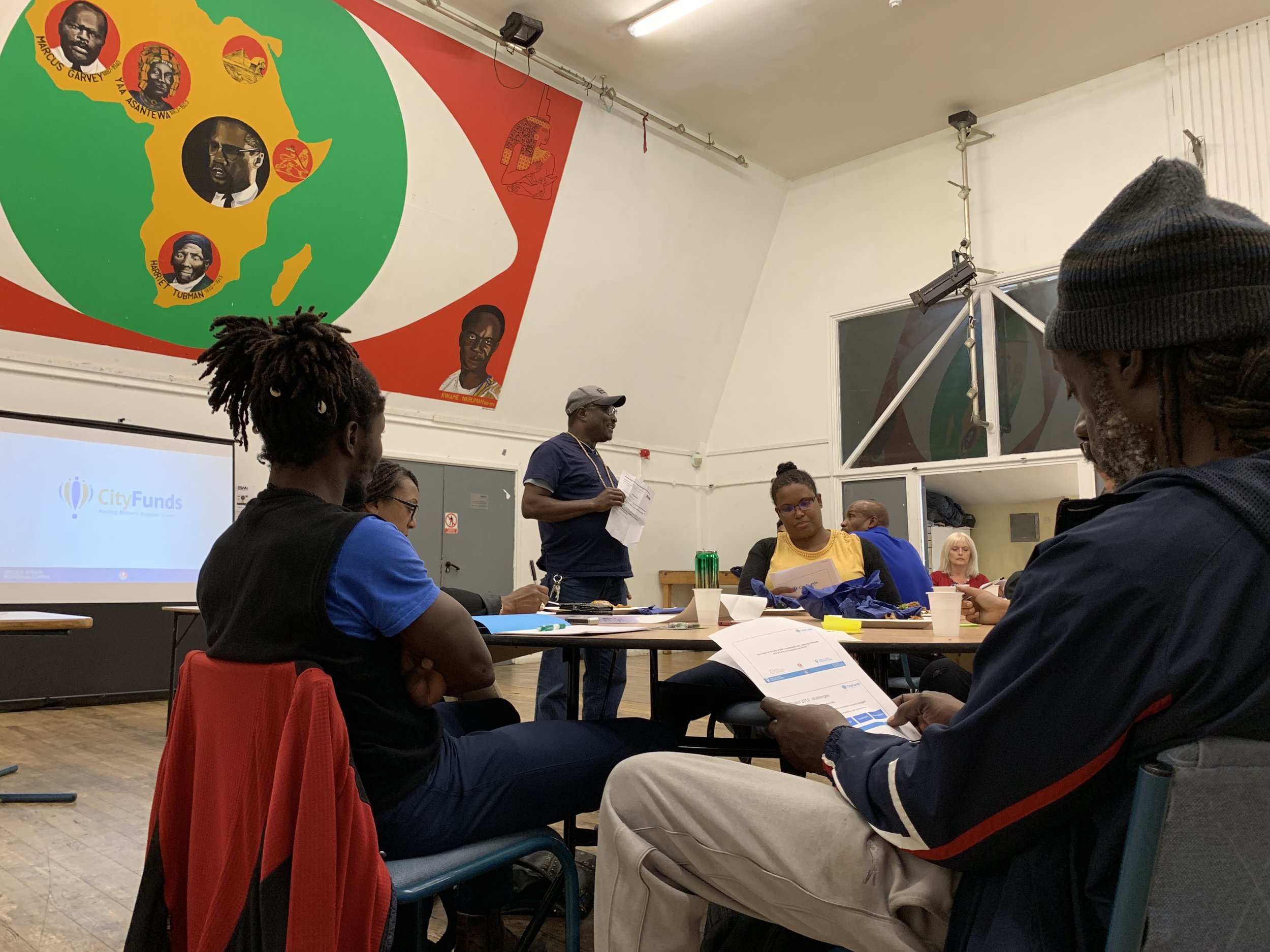The 5th Voluntary and Community Sector Network Meeting was hosted at Malcom X Centre on 19th August 2019 and was attended by a full room of 35 attendees.
The event, facilitated by the habitual Chair Jendayi Serwah, was organised around the theme of ‘Opportunities for BAME organisations in relation to the Bristol City Funds’. After a brief welcoming speech by the host Madu Ellis, the audience was introduced to the concept of City Funds and the associated key challenges by Sue Turner, CEO of Quartet Community Foundation.
The main challenges highlighted were:
Systemic disadvantage and inequality.
Reduced provision in local areas.
Restricted grant environment means innovative projects struggle to find the right types of finance.
City-wide resources being unaligned, competing and duplicating efforts.
The City Funds aims to respond to these barriers through:
Funding and Investment linked to city priorities.
One point of contact with supportive infrastructure to bring together: grants, investment, assets, expertise, networks.
Collaborative support for organisations creating social or environmental impact.
Market knowledge: investing at the right scale and time to maximise successful outcomes city-wide.
Amplified impact by drawing resources to the region.
Finally, Sue explained that the funding will be broken down into four mainstreams aimed at community initiatives, economic inclusion, child hunger and environmental transformation.
The meeting continued with an interactive brainstorming exercise, where the attendees were presented with three key questions to be answered in groups. The discussion stemming from that produced recommendations to ensure the City Funds’ initiatives accountability, effectiveness and outreach to be successful.
Question 1 - How should we let people in communities know how they can benefit from City Funds?
Identifying community champions/leaders/changemakers with passion and connections within the different communities and engaging them in the outreach process to spread news & opportunities.
Communicating at local level e.g. flyers in local venues, barber shops and pubs to reach people who are not present on social media.
Improving the use of area notice-boards in terms of accessible language and content relevant to communities.
Increasing the use of local media tools e.g. Ujima, BCFM, community radio shows, magazines and social media.
Bristol City Council officers engaging more with communities’ networks, presenting the advancement of funded initiatives and collecting feedback.
Improving clarity of purpose and target audience in all communication.
Question 2- How should the application and monitoring processes for City Funds be managed so they are proportionate and accountable?
Ensuring all organisations involved have diverse Boards and leadership in order for decision-making mechanisms to be truly representative of all communities.
Including Diversity & Inclusion targets into the requirements to qualify for funding applications.
Enhancing transparency on funds allocation through constant communication and online updates on the website.
Question 3 - What are your ideas for additional and systems change activities that City Funds should support?
Up-skilling key members from the different BAME communities to equip them with the tools to deliver the City Funds objectives.
Avoiding duplication of services and dispersion of information; all services to be accessed through the same spot -> BAME Enterprise & Impact Hub.
Incorporating diversity & inclusion as key priorities in ALL other areas of the city plan, e.g. health/wellbeing, criminal justice, education, employment and economic growth, media.
Investing time into understanding the needs of each individual community.
Making the application process accessible and easily accomplished by organisations with limited capacity.
Ensuring every session/workshop/opportunity for engagement is relevant to the communities and residents by implementing a local approach.
Investing in young BAME people and their personal and professional development particularly around new technology.
Ensuring sustainable change despite political change.




